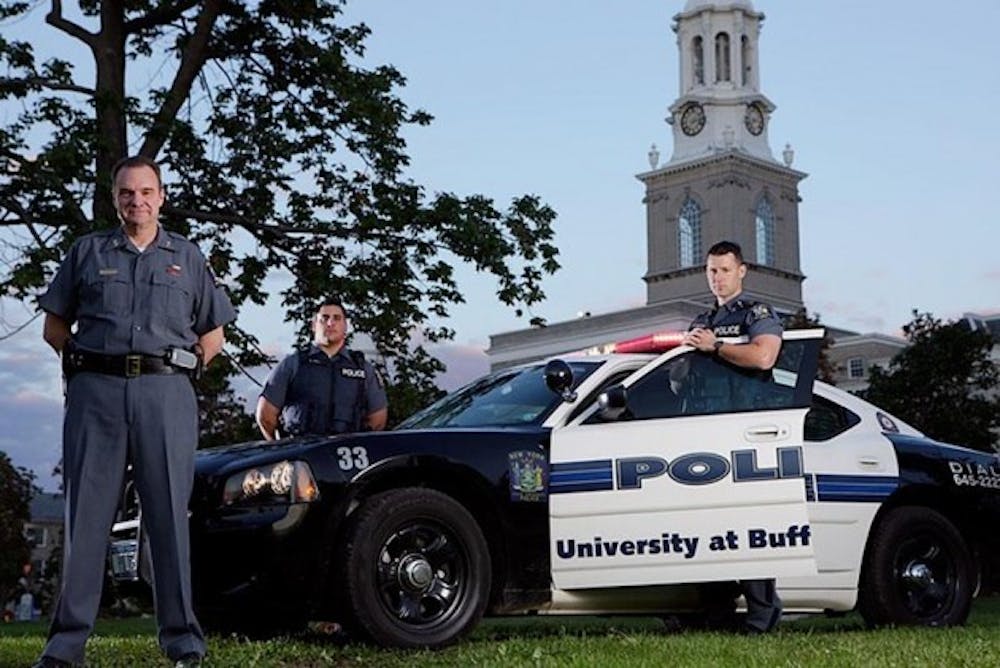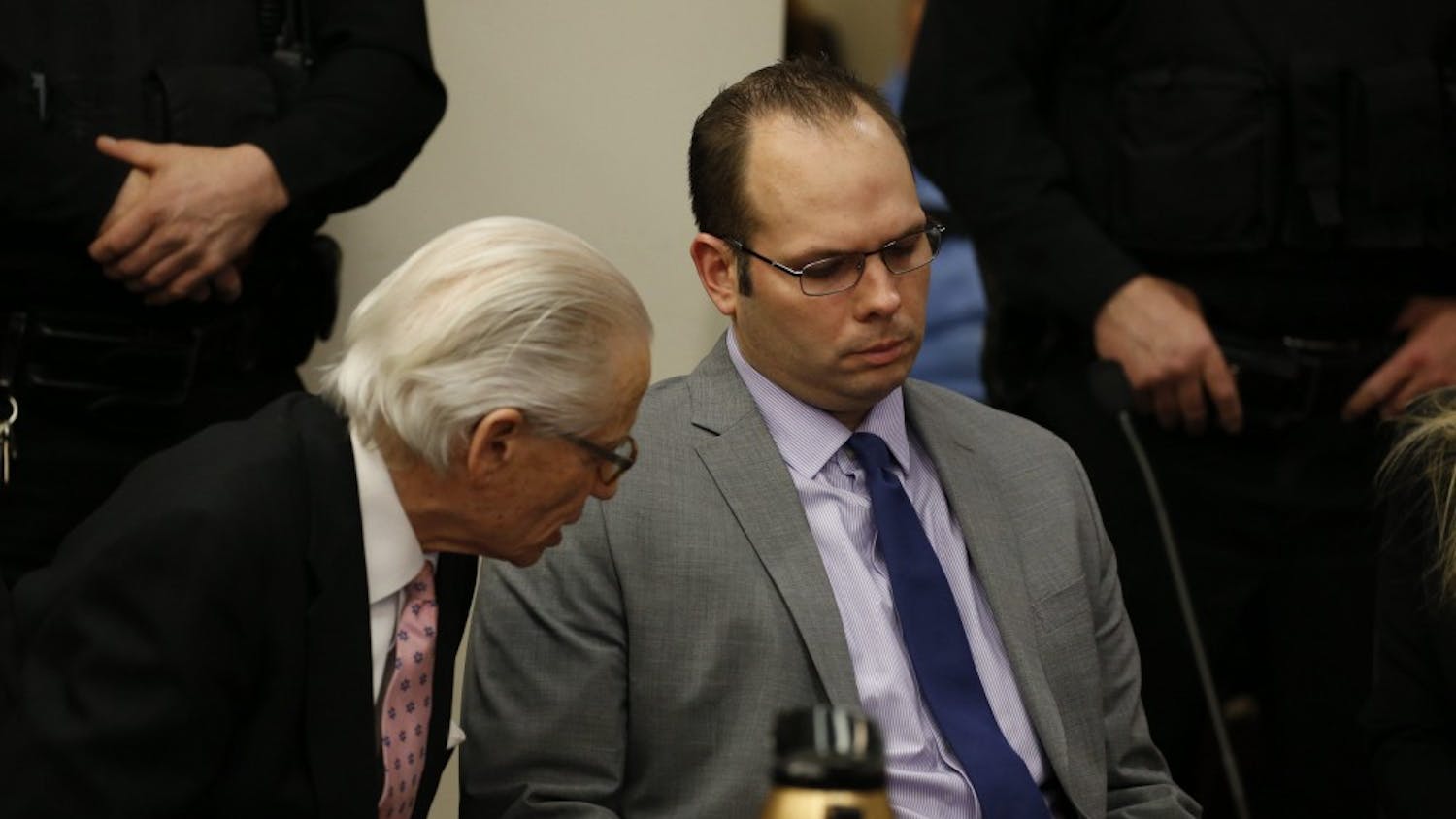University Police Department (UPD) has achieved the "gold standard" of law enforcement and public service.
On March 23, the department was the first in Erie County and one of five in New York State to receive accreditation from the Commission of Accreditation of Law Enforcement Authorities (CALEA).
The goal of the accreditation program is to improve the services of public safety organizations through setting high standards for crime prevention, emergency response and management practices.
Twenty-four law enforcement agencies have been accredited by CALEA from different universities in the United States and were judged based on their ability to perform under established policies.
"There are 18,000 law enforcement agencies in this country and only about 5 percent of them are able reach CALEA accreditation status," said Craig Hartley, deputy director and chief of staff for CALEA.
From Nov. 18-20, CALEA assessors observed UB police officers and their facilities. They monitored policies for vehicle pursuit, use of force in arrests, high-liability cases and handling documents.
The officers made several changes in compliance with CALEA standards. Physical changes to the building included installing security cameras in rooms where juveniles are interrogated and setting up alarm clocks for when an officer needs assistance with a prisoner. A second level of security was installed for evidence room cabinets and areas containing guns, drugs and money.
CALEA standards also require officers are familiar with the proper documentation used for making arrests, especially when force is involved. Officers must show they were trained in these policies and sign off on these documents to show they read them.
Chief of Police Gerald Schoenle Jr. said it is important for police departments to have goals like reducing residence hall burglaries by 10 percent, which he believes helped UPD achieve accreditation. Officers checked doors and left notes to make sure students locked their rooms.
UPD also recently focused on car break-ins. Officers would leave vehicle report cards and warnings reminding drivers to keep their cars and belongings safe. They also sent out safety messages via email. In September, UPD and public safety aides canvassed 5,113 vehicles (3,643 on North Campus and 1,470 on South Campus) in an effort to reduce the number of break-ins and warn students who may be at risk of theft, as The Spectrum reported in November.
"You need to have policies on just about everything," Schoenle said. "On your budget, handling of petty cash [and] job descriptions for police officers. It's a really comprehensive program."
Lieutenant Scott Marciszewski was in charge of handling UPD files. Marciszewski made sure the files were readily available for the assessors.
"Training is a big part of accreditation," Marciszewski said. "I have to show through copies of records that we adhere to the training standards, such as firearms, ethics and legal updates. I have to show through these programs that we comply."
Learning new policies, updating them and sending them out to everyone in the department spreads awareness of CALEA standards and leads to an overall effective law enforcement agency, according to Schoenle.
"It's the best practice that has been proven to be an effective way for a police department to operate," Schoenle said. "If you do these things, you are going to be providing a better service to your customers, which is your students, faculty and staff. You are, overall, a better police department. There are less lawsuits against departments that are accredited."
On March 23, Marciszewksi, along with Assistant Chief Chris Bartolomei, attended the review committee hearing at the CALEA Commission Conference in Charleston, S.C. The assessment team decided UPD was worthy of accreditation because of its professionalism, its involvement with the campus community and the support it receives from UB.
Marcizsewski said it was an honor to receive accreditation and meet various accredited police departments from around the United States.
"[UPD has] become somewhat elite because not every department seeks out accreditation," Marciszewski said. "So these are probably the best of the best. These are the best policies and best practices in law enforcement. Being accredited, we are now recognized as a premier agency."
Now that UPD has received accreditation, it must go through the process of re-accreditation every three years to make sure the department keeps up with current standards in law enforcement.
Email: news@ubspectrum.com





